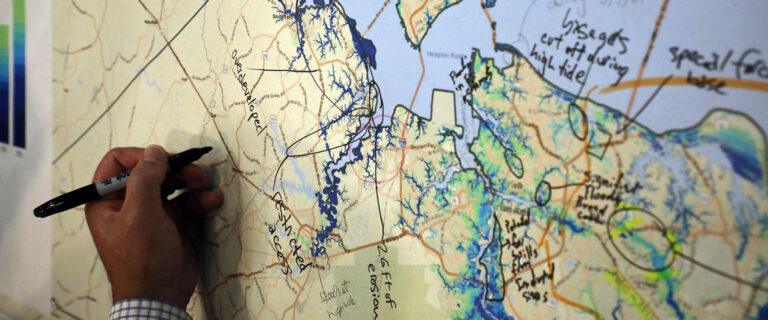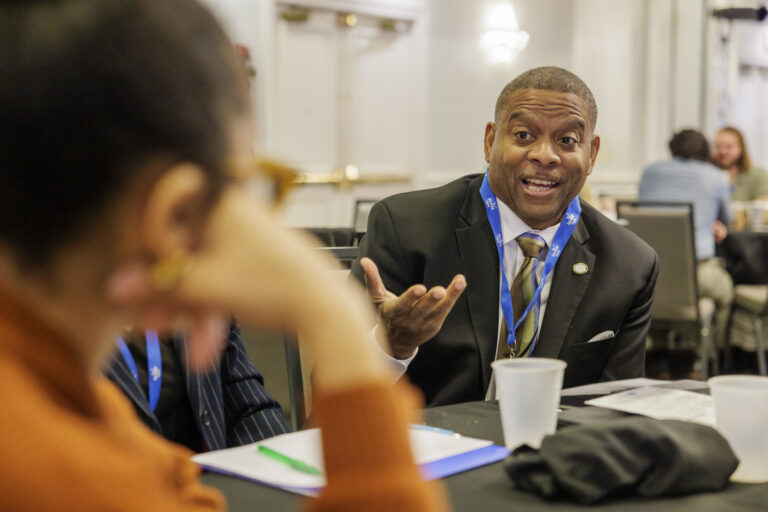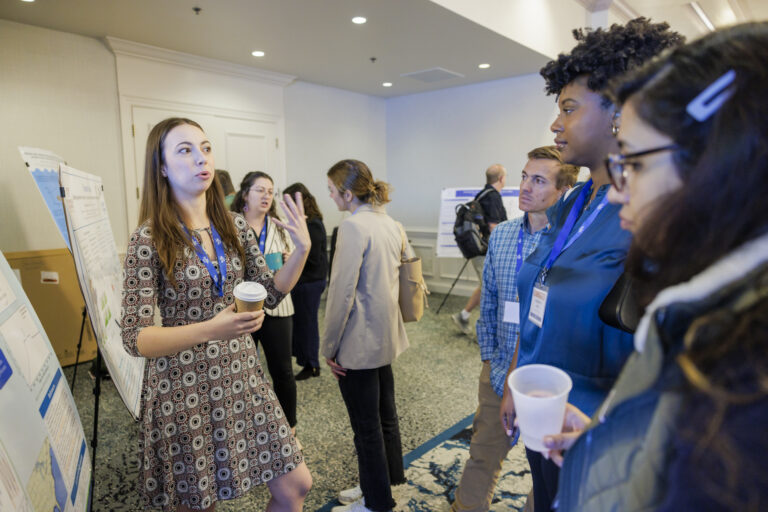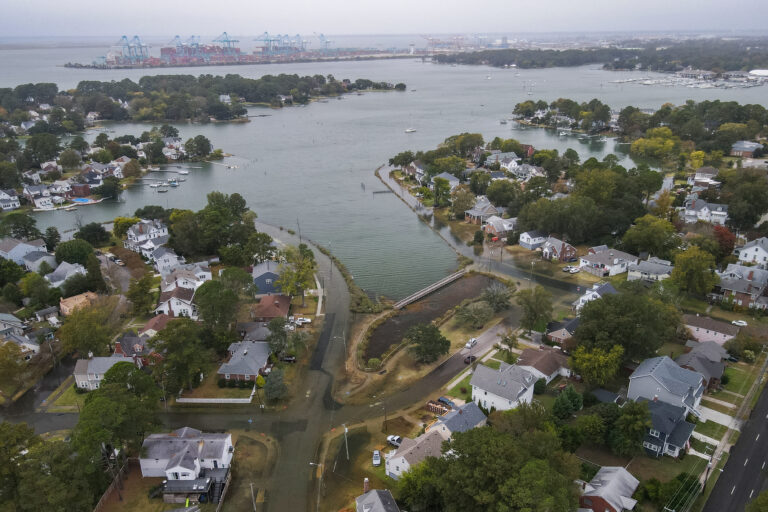Fellow prepares 'playbook' for Virginia's coastal resilience
When Ben Nettleton watched Governor Ralph Northam sign an executive order in 2018 to increase Virginia’s resilience to storms and flooding, he had no idea he’d later be working on Virginia’s first comprehensive coastal resilience master plan as a VASG Coastal Adaptation & Protection Fellow.
“I remember thinking, ‘That’s a big order, to get this done in this administration,’ and wondering how they’re going to get that done,” Nettleton said. “Little did I know that I would be part of making it possible.”
During Nettleton’s 2020 Coastal Adaptation & Protection Fellowship, he helped create the Coastal Master Planning Framework, a document released in October 2020 that outlined the threat from sea level rise and climate change, as well as the goals and steps left for the full Coastal Resilience Master Plan, which was published earlier this month.
Ultimately, the master plan identified projects and priorities for the Commonwealth in response to the in-depth flood vulnerability reports created by Dewberry. It includes project priorities, lists projects already underway, and offers funding sources available for future projects.
“That’s the point — localities can look at this themselves and they can say, ‘Hey, I can use this for my planning efforts, and here’s how I want to use it,” said Rear Admiral (Retired) Ann Phillips, who spearheaded the master plan’s formation in her role as Special Assistant to the Governor for Coastal Adaptation and Protection.
The master planning process didn’t happen in isolation — Nettleton also met with planning district commissions and tracked down academic research to include in the plan. During this process, he collaborated with other fellows assisting Phillips.
“There was a lot of research and writing, and making sure everything in the master plan was cited in peer-reviewed science, so nothing that we claimed couldn’t be linked to something that was scientific,” Nettleton said. “That was the main part of my job.”
As Phillips and the fellows assembled the research and information already underway, the team also identified topics where more information was needed, like a model that showed nuisance flooding and areas impacted — “that was brand new science the state created for this,” Nettleton said.
Part of his fellowship involved tracking legislature related to resilience going through the Virginia legislature’s 2020 sessions. He also helped draft some briefs about legislation with the pros and cons of passing the bill, or adding background information into the summaries about the climate change impacts relevant to the bill.
“That was just completely eye-opening and fascinating, especially the budget process,” Nettleton said.
“There was a lot of research and writing, and making sure everything in the master plan was cited in peer-reviewed science,” Nettleton said.
Having the opportunity to work in such a dynamic environment was Nettleton’s favorite part of the fellowship.
In addition to drafting parts of the coastal master planning framework, Nettleton also helped Phillips fact-check her congressional testimonies to ensure the statements she gave were evidence-based. In total, Phillips appeared before three congressional committees — the House budget committee, the house committee on transportation and infrastructure, and the Select Committee on Climate Crisis.
After Nettleton’s fellowship concluded, a technical advisory committee convened Virginia’s state agency leadership, academic leadership, nonprofits, and local government leaders to assist with the master plan.
Having the opportunity to work in such a dynamic environment was Nettleton’s favorite part of the fellowship.
“Working with people on such high-level initiatives to push the state forward in terms of conservation and sea level rise — and just being surrounded by that kind of energy — was really positive,” Nettleton said.
After completing his fellowship, Nettleton joined the Virginia Marine Resources Commission Habitat Management Division as an environmental engineer.
Takeaways:
- The first Virginia Coastal Resilience Master Plan includes project priorities, lists projects already underway, and offers funding sources available for future projects.
- During Nettleton’s VASG fellowship, he helped write the master planning framework, met with regional planners, tracked legislation, and helped prepare congressional testimonies.
- After completing his fellowship, Nettleton joined the Virginia Marine Resources Commission
Photos and video by Aileen Devlin | Virginia Sea Grant
Story by Madeleine Jepsen | Virginia Sea Grant
Published December 22, 2021.
“I remember thinking, ‘That’s a big order, to get this done in this administration,’” Nettleton said. “Little did I know that I would be part of making it possible.”





